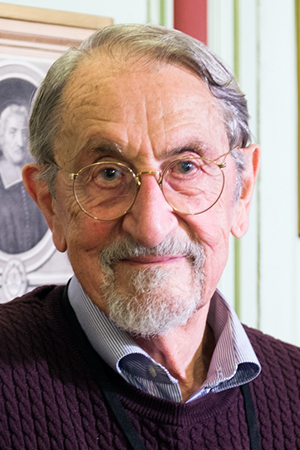Martin Karplus

Karplus was born in Vienna, Austria, in 1930. He received his B.A. from Harvard College in 1950 and his Ph.D. from Caltech in 1953. He worked at Oxford University as an NSF postdoctoral fellow from 1953 until 1955, when he joined the faculty of the University of Illinois. In 1960, Karplus became professor at Columbia University, and in 1966 at Harvard University. He was named Theodore William Richards Professor of Chemistry there in 1979. He was also Professeur Conventionnée at the Université de Strasbourg. He was a member of the National Academy of Sciences (USA), the American Academy of Arts & Sciences, and a foreign member of the Netherlands Academy of Arts & Sciences and the Royal Society of London. He was a Commander in the French Legion of Honor. He received honorary degrees from the University of Sherbrooke, the University of Zurich and Bar-Ilan University, as well as numerous awards for his many contributions to science, including the 2013 Nobel Prize in Chemistry.
Early in his career, Karplus studied magnetic resonance spectroscopy; of particular interest was his theoretical analysis of nuclear spin-spin coupling constants. He made fundamental contributions to the theory of reactive collisions between small molecules based upon trajectory calculations. He was one of the first researchers to apply many-body perturbation theory to atomic and molecular systems. He studied quantum mechanical processes in biological molecules, such as the bonding of oxygen to hemoglobin and the photochemistry of visual pigments. His later work was concerned with the development of molecular dynamics and other simulation methods for the elucidation of the properties of proteins and nucleic acids.
Over the years, Karplus conducted research in many areas of theoretical chemistry and biochemistry and presented his results in over 800 journal articles and book chapters, as well as two books. His primary interest was to develop and employ theoretical methods for increasing our understanding of chemical and biological problems. His contributions have been instrumental in the transformation of theory from a specialized field to a central part of modern chemistry and more recently of structural biology.
Karplus was an alumnus of the 1947 Science Talent Search.